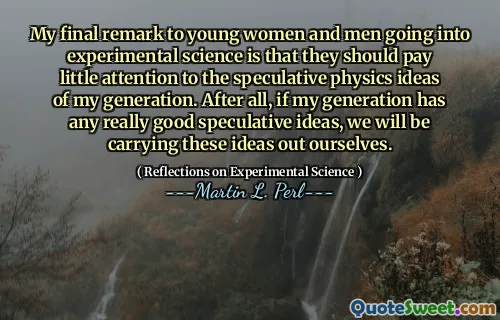"Reflections on Experimental Science" explores the nature of scientific inquiry and the critical role of experimentation in advancing knowledge. The author emphasizes that science is not only about gathering data but also about understanding the processes that lead to discoveries. By scrutinizing the methodologies used in experiments, the book highlights the importance of replicability and the rigorous testing of hypotheses to ensure the validity of results.
The book also delves into the philosophical implications of experimental science, questioning what constitutes scientific truth and how biases can influence research outcomes. It encourages scientists to maintain a degree of skepticism and to continually reassess their findings in light of new data. This reflective approach is portrayed as essential for the evolution of scientific thought.
Furthermore, "Reflections on Experimental Science" advocates for interdisciplinary collaboration, suggesting that integrating insights from various fields enhances the robustness of scientific inquiry. The narrative presents case studies that exemplify successful collaborations, illustrating how diverse perspectives can lead to innovative solutions and deeper understanding of complex scientific phenomena.
More »
Today Birthdays
1729 -
Edmund Burke
1949 -
Haruki Murakami
1954 -
Howard Stern
1876 -
Jack London
1993 -
Zayn Malik
1951 -
Kirstie Alley
1863 -
Swami Vivekananda
1923 -
Alice Miller
1987 -
Naya Rivera
1825 -
Brooke Foss Westcott
1944 -
Joe Frazier
1951 -
Rush Limbaugh
1964 -
Jeff Bezos
1978 -
Jeremy Camp
1628 -
Charles Perrault
1856 -
John Singer Sargent
1970 -
Kaja Foglio
1953 -
Rick Santelli
1986 -
Gemma Arterton
1968 -
Raf Simons
1958 -
Christiane Amanpour
1966 -
Olivier Martinez
1996 -
Ella Henderson
1917 -
Maharishi Mahesh Yogi
1949 -
Ottmar Hitzfeld
1928 -
Ruth Brown
1968 -
Heather Mills
1946 -
George Duke
1968 -
Rachael Harris
1923 -
Ira Hayes
